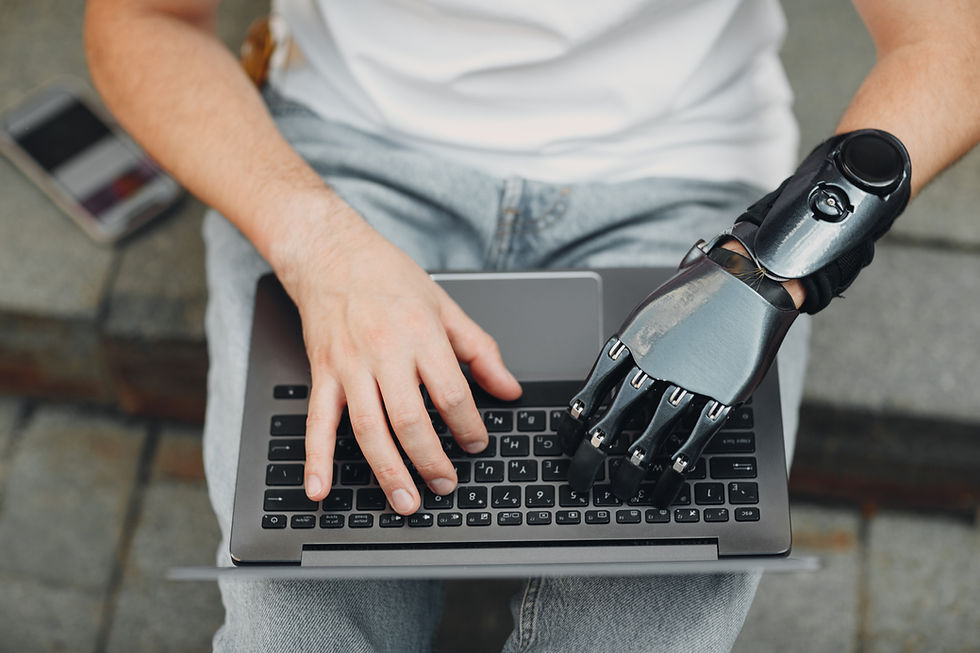What’s Next? Predictions for Future Advancements in Medical Devices
- Anthony Cochrane

- Jun 12, 2024
- 2 min read
Updated: Oct 24, 2024
The medical device industry is continuously evolving, driven by technological advancements and innovative thinking. As we look to the future, several exciting trends and developments are poised to shape the landscape of medical devices. Here are some predictions for future advancements that will transform healthcare.

The future of medical devices is brimming with potential, with several key advancements expected to drive the industry forward. Here are some predictions for the future of medical devices:
Advanced Wearable Technology: Wearable devices will become even more sophisticated, capable of monitoring a wider range of health metrics with greater accuracy. These devices will be integral to preventive healthcare and chronic disease management.
AI and Machine Learning Integration: The integration of AI and machine learning will become more widespread, enhancing the capabilities of medical devices. AI-powered diagnostic tools and personalized treatment plans will improve patient outcomes and streamline healthcare processes.
Miniaturization of Devices: Medical devices will continue to shrink in size, making them less invasive and more convenient for patients. Miniaturized devices, such as implantable sensors and micro-robots, will enable continuous health monitoring and targeted treatments with minimal discomfort.
Telemedicine and Remote Monitoring: The expansion of telemedicine will be supported by advanced medical devices that enable remote monitoring and diagnostics. Patients will have access to high-quality healthcare from the comfort of their homes, reducing the need for frequent hospital visits.
Personalized Medicine: The future will see a greater emphasis on personalized medicine, with medical devices tailored to individual genetic profiles and health conditions. This approach will improve treatment efficacy and reduce adverse effects.
Regenerative Medicine and Bioprinting: Advances in bioprinting and regenerative medicine will lead to the development of lab-grown tissues and organs. These innovations could revolutionize transplant medicine, reducing the dependency on donor organs and improving patient survival rates.
Internet of Medical Things (IoMT): The IoMT will connect medical devices, healthcare systems, and patients through a network of smart devices. This connectivity will facilitate real-time data sharing, enhancing patient care and enabling predictive maintenance of medical equipment.
Enhanced Data Security: As medical devices become more interconnected, ensuring data security will be paramount. Future advancements will focus on robust cybersecurity measures to protect sensitive patient information and maintain the integrity of healthcare systems.
Sustainable and Eco-friendly Devices: There will be a growing emphasis on sustainability in the medical device industry. Manufacturers will adopt eco-friendly materials and production processes, reducing the environmental impact of medical devices.
Augmented Reality (AR) and Virtual Reality (VR) in Healthcare: AR and VR technologies will play a significant role in medical training, surgical planning, and patient rehabilitation. These immersive technologies will provide realistic simulations and visualizations, improving the quality of care and medical education.
The future of medical devices is incredibly promising, with advancements that will not only enhance patient care but also transform the entire healthcare ecosystem. As these predictions become reality, the medical device industry will continue to innovate and push the boundaries of what is possible in healthcare.




Comments